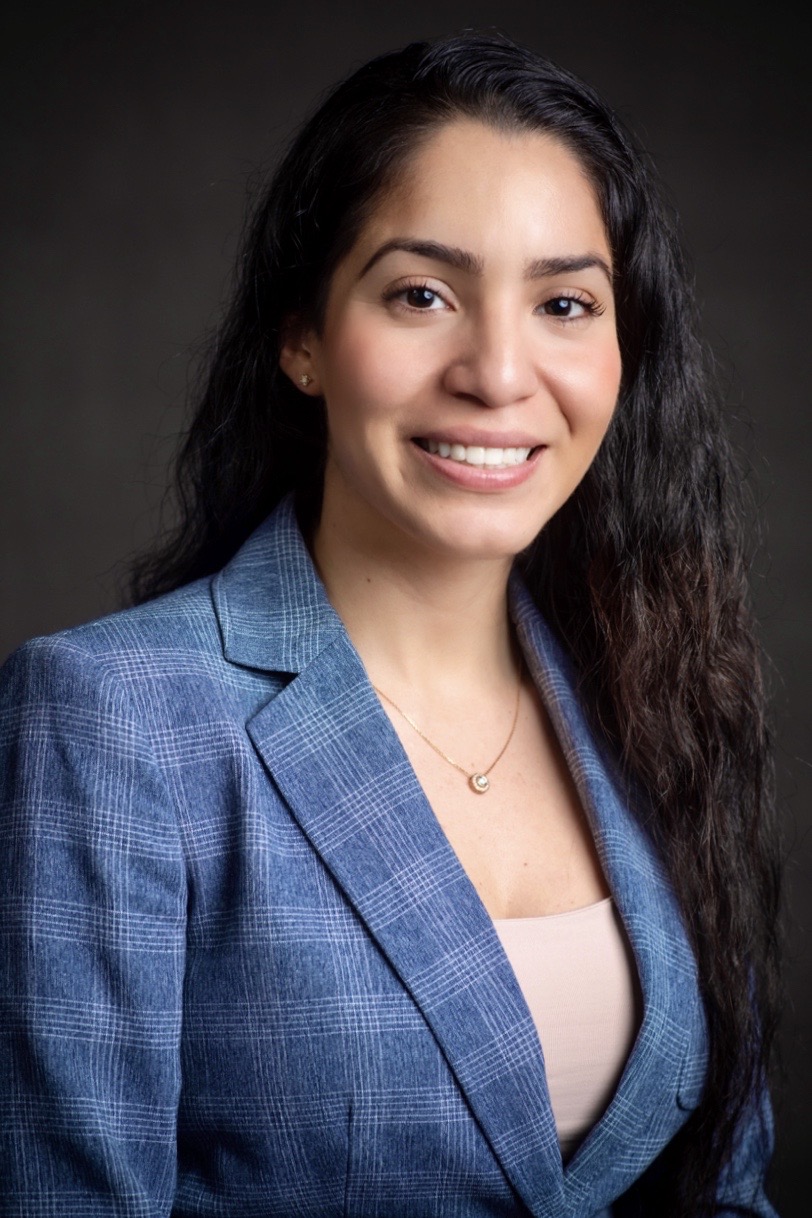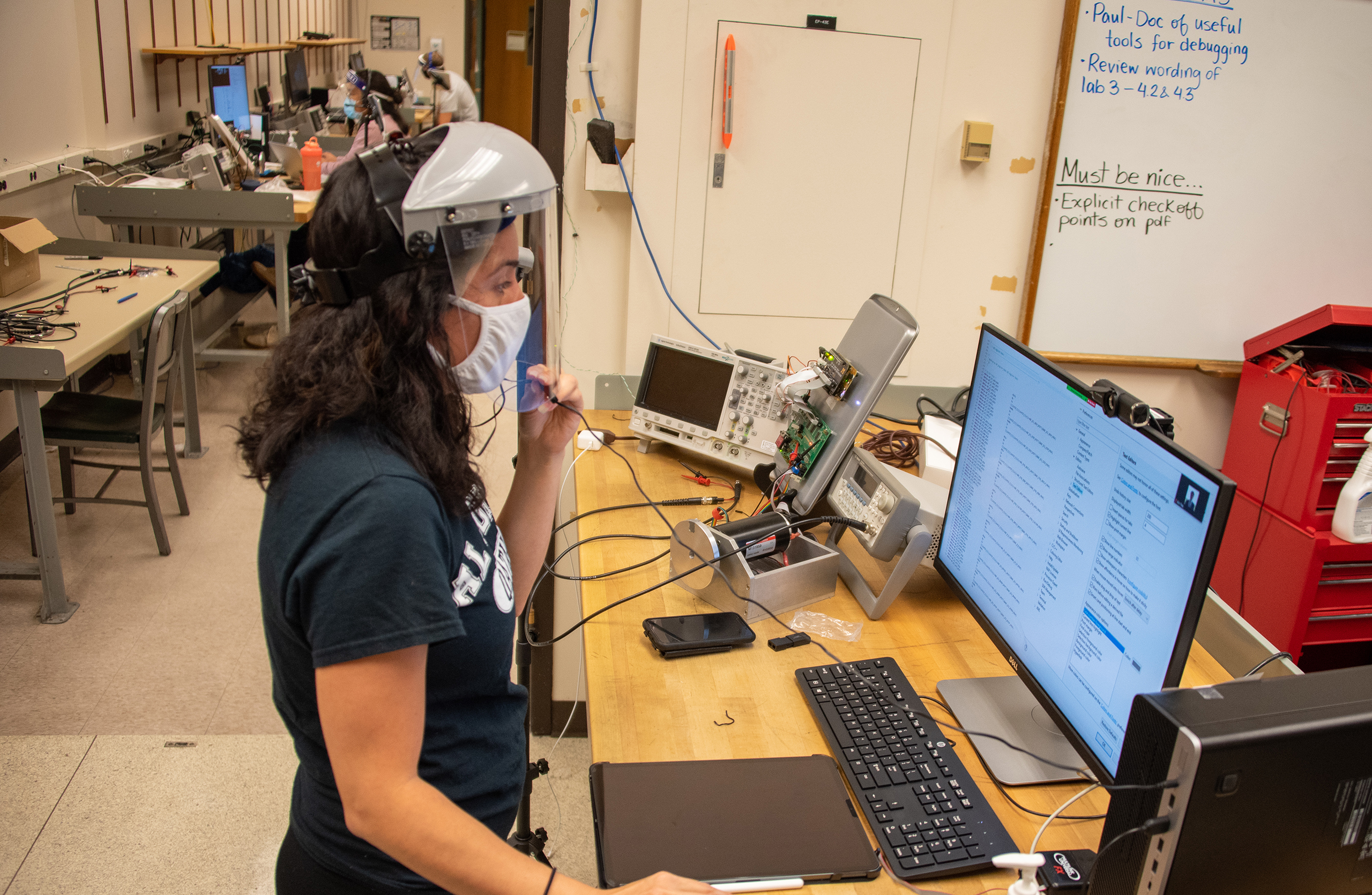The impact of COVID-19: A student perspective
Stefany Escobedo’s life changed drastically when COVID-19 shut down her access to a wide community of friends and activities

 Enlarge
Enlarge
Stefany Escobedo brought home a puppy from the Humane Society a year ago, and he keeps her company as she remains fairly isolated in her apartment in Ann Arbor due to the pandemic. This is a new normal that’s not normal.
Escobedo is a master’s student who recently graduated from Michigan with her B.S.E in Computer Engineering. In addition to serving as a graduate student instructor, she is part of MEDPREP (a post-baccalaureate premedical program), serves as an ECE Ambassador, was president of the Student Veterans of America (SVA) University of Michigan chapter, a board member of IEEE, and a member of the engineering honor societies HKN and Tau Beta Pi as well as the Society of Hispanic Professional Engineers.
We wanted to find out how life has changed for her at Michigan since the pandemic struck campus, and at the same time caught a glimpse into the background of this remarkable student.
How have you been?
Busy, tired, stressed out. And now that I’m not going to classes, the weather affects me much more.
Why did you transfer to Michigan as an undergraduate student?
I was almost done my degree, but was also in the Air Force Reserve, working full time, and spending a lot of time commuting. I felt like I had no retention of information, and there was no real application of knowledge. I decided to quit my job so I could really focus on my education, and wanted to go to a really good public university. Michigan was at the top of the list.
How do you see your ECE degree meshing with your goal of being a doctor?
My master’s is focused on embedded systems, and the classes that have been more application focused were where I could really shine. I was like, ‘this is amazing. I love it.’ And then I became very interested as I got more into courses that were medically related.
I remember taking a biomedical instrumentation class, and that’s where I learned that the human body is all signals, and that we have electricity in our body. I was working with an oscilloscope and taking signals from my own body. And then there is machine learning, which is all about trying to emulate what the brain does on its own. It’s all interrelated and super interesting to me.
I like working on projects that are for people, that are critical for their well-being. And embedded systems are in everything. My hope is to be a part of that bridge between technology and medicine, and hopefully help somebody in the future.
Can you tell us a little about some of the student groups you’ve been part of?
IEEE: This was one of the first groups I joined at Michigan, and it’s for anybody who is technology inclined. All the board members are willing to help in any way, and figure out how we can better serve our students, connect them with companies, and give the students what they need and what they want. Super great organization.
Society of Hispanic Professional Engineers: The people are so much fun. I enjoy the community and connecting with that part my culture, like being able to use certain words that non-Spanish speaking people don’t understand, and salsa dancing!
All these types of organizations are helpful in setting you up to meet the right people, and help improve your time here at Michigan.
Back in March when the University first shut down, did you stay on campus or return home?
I first returned home to Miami because I already had a flight scheduled so I could do some work in the Air Force Reserve. I first thought I’d just stay there, but my family home includes my brother’s family with his three daughters, and his dog, and I have a dog. It was chaotic – and I was used to having a quiet place to retreat to after school and a library to study in. Since everything was closed, it became a choice between being around people, or passing my classes, so I came back.
What are some of the key challenges of the new online/hybrid format combined with social distancing?
It’s been a lot harder to make those connections with other students that are critical to your mental health. Even study groups are a lot harder to create. I tried to study with someone, but engineering is so drawing based, and that just doesn’t work as well.
As a Graduate Student Instructor for EECS 461 (Embedded Control Systems), have you noticed signs that students are having problems?
Fortunately, no one in our class has tested positive for COVID-19, but I’m sure there are students who are going through other stressors. We’ve had some students who stopped attending the labs and stopped submitting assignments. I think we all need to be keeping track of individuals like this.

 Enlarge
Enlarge
Were there any positive changes that were spurred by COVID?
I like having 24 hour exams. The questions are more in depth and more open-ended and application based, as opposed to memorization of information and equations. And getting away from the time crunch helps some people. Some of my friends really like to sleep all day and work until 4 in the morning, so they really like that flexibility. And it’s great that now all the lectures are recorded.
 MENU
MENU 
